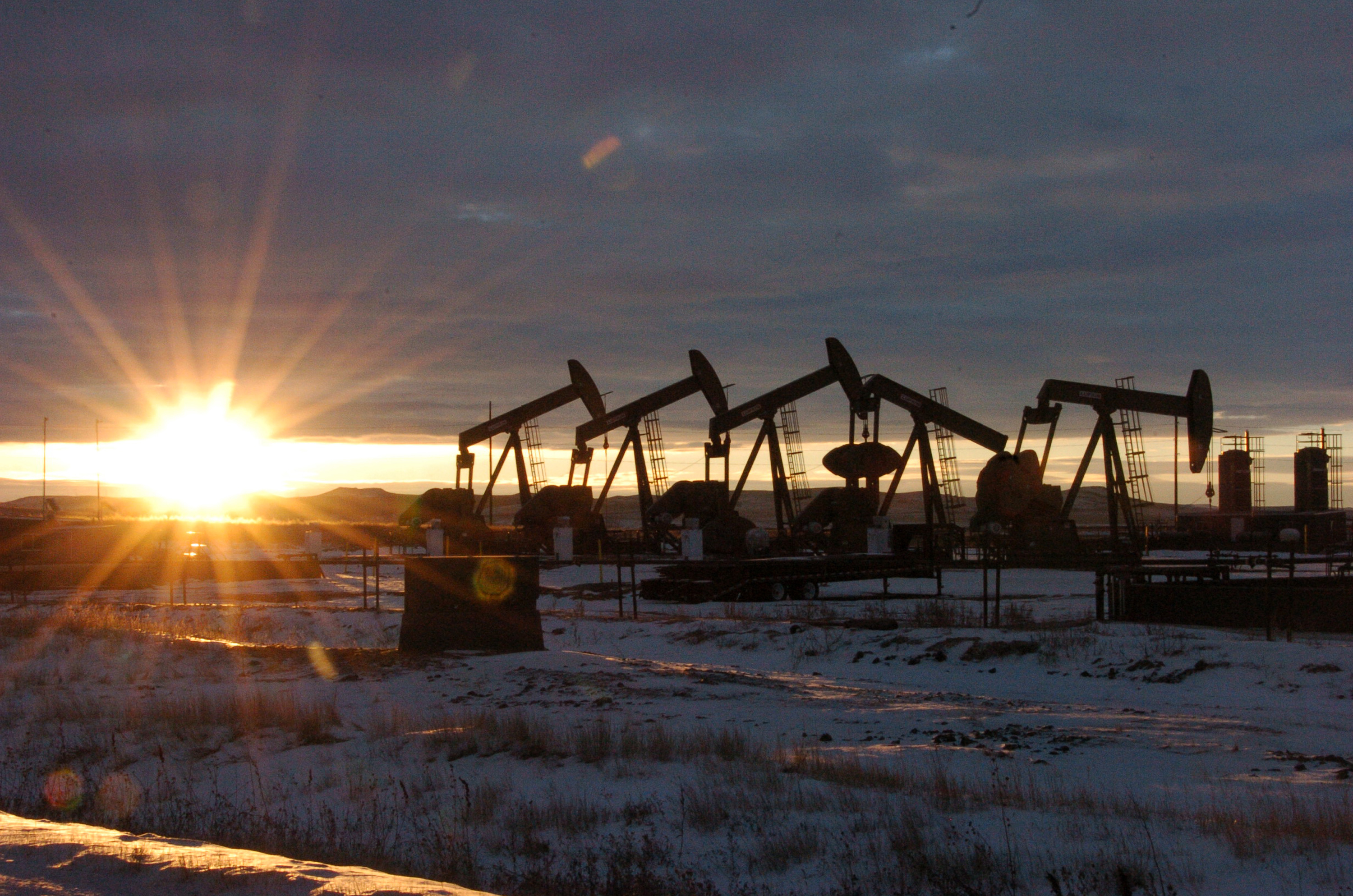Saudi America: Unpacking the consequences of the U.S. oil boom
What will it mean for the U.S. to become a petrostate?


A free daily email with the biggest news stories of the day – and the best features from TheWeek.com
You are now subscribed
Your newsletter sign-up was successful
Sometimes clean tech advocates will say something like "The U.S. is the Saudi Arabia of solar" or "The U.S. is the Saudi Arabia of wind." You know what else the U.S. is turning into the Saudi Arabia of? Oil and gas.
America produced more oil and gas in 2014 than any other country, including petrostates like Russia and Saudi Arabia.
The long-term significance of this cannot be overstated.
The Week
Escape your echo chamber. Get the facts behind the news, plus analysis from multiple perspectives.

Sign up for The Week's Free Newsletters
From our morning news briefing to a weekly Good News Newsletter, get the best of The Week delivered directly to your inbox.
From our morning news briefing to a weekly Good News Newsletter, get the best of The Week delivered directly to your inbox.
In terms of geopolitics, while the Middle East will remain important but fractious for the foreseeable future, the shale revolution nonetheless means the long-term death of OPEC. The global marketplace for commodities will more and more resemble an actual market, instead of a political wrestling match with the health of the global economy at stake.
Speaking of which, increased global commodities production means lower oil and gas prices, which means higher economic growth. This is obviously very good and welcome. What's more, this is also an environmental bonanza, since most of the increased production comes from gas, which is cleaner than oil or coal.
But the consequences for the political economy of the United States might not necessarily be glorious. With pretty much the sole exception of Norway, the list of petrostates is not a who's who of the nicest places on Earth. Economically, high oil production often leads to what is called the "Dutch disease" — oil exports drive up the price of the currency, making other industries less competitive, smothering them. This leads to a vicious cycle where the oil industry becomes the dominant industry in the country, and other industries cannot develop. But the political consequences are more devastating. An enormous pot of money for politicians to allocate is an inevitable recipe for cronyism, corruption, white elephant government programs, outrageous welfare spending, and so on.
Conservatives can look forward to a future where everybody in the country is on the dole in one way or another. Liberals can look forward to a future where the oil industry's political influence makes Wall Street look like a lemonade stand. That is not a good future.
A free daily email with the biggest news stories of the day – and the best features from TheWeek.com
And finally, one very important lesson: central planning doesn't work; the free enterprise system does. Richard Nixon promised energy independence. Gerald Ford promised energy independence. Jimmy Carter promised energy independence. Ronald Reagan promised energy independence. George H. W. Bush promised energy independence. Bill Clinton promised energy independence. George W. Bush promised energy independence. Barack Obama promised energy independence. The U.S. is getting energy independence at long last — in a way that absolutely nobody in Washington (and most economic analysts) expected.
It's called the shale revolution, and it happened seemingly on its own, through the magic of what the author and entrepreneur Jim Manzi describes as the American System. This American System has a role for government in providing the rule of law, good institutions, and basic research — this is no Randian utopia — but otherwise lets the free enterprise system work its magic. And when it does, it really is magic.
Pascal-Emmanuel Gobry is a writer and fellow at the Ethics and Public Policy Center. His writing has appeared at Forbes, The Atlantic, First Things, Commentary Magazine, The Daily Beast, The Federalist, Quartz, and other places. He lives in Paris with his beloved wife and daughter.
-
 How the FCC’s ‘equal time’ rule works
How the FCC’s ‘equal time’ rule worksIn the Spotlight The law is at the heart of the Colbert-CBS conflict
-
 What is the endgame in the DHS shutdown?
What is the endgame in the DHS shutdown?Today’s Big Question Democrats want to rein in ICE’s immigration crackdown
-
 ‘Poor time management isn’t just an inconvenience’
‘Poor time management isn’t just an inconvenience’Instant Opinion Opinion, comment and editorials of the day
-
 The pros and cons of noncompete agreements
The pros and cons of noncompete agreementsThe Explainer The FTC wants to ban companies from binding their employees with noncompete agreements. Who would this benefit, and who would it hurt?
-
 What experts are saying about the economy's surprise contraction
What experts are saying about the economy's surprise contractionThe Explainer The sharpest opinions on the debate from around the web
-
 The death of cities was greatly exaggerated
The death of cities was greatly exaggeratedThe Explainer Why the pandemic predictions about urban flight were wrong
-
 The housing crisis is here
The housing crisis is hereThe Explainer As the pandemic takes its toll, renters face eviction even as buyers are bidding higher
-
 How to be an ally to marginalized coworkers
How to be an ally to marginalized coworkersThe Explainer Show up for your colleagues by showing that you see them and their struggles
-
 What the stock market knows
What the stock market knowsThe Explainer Publicly traded companies are going to wallop small businesses
-
 Can the government save small businesses?
Can the government save small businesses?The Explainer Many are fighting for a fair share of the coronavirus rescue package
-
 How the oil crash could turn into a much bigger economic shock
How the oil crash could turn into a much bigger economic shockThe Explainer This could be a huge problem for the entire economy
